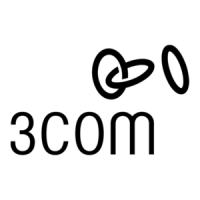9-19
Character Meaning Remarks
string$
Ending sign, string appears only at the
end of a line.
For example, regular expression "user$”
only matches a string ending with
“user”, not “userA”.
.
Full stop, a wildcard used in place of any
character, including single character,
special character and blank.
For example, “.l” can match “vlan” or
“mpls”.
*
Asterisk, used to match a character or
character group before it zero or multiple
times.
For example, “zo*” can match “z” and
“zoo”; (zo)* can match “zo” and “zozo”.
+
Addition, used to match a character or
character group one or multiple times
before it
For example, “zo+” can match “zo” and
“zoo”, but not “z”.
|
Vertical bar, used to match the whole
string on the left or right of it
For example, “def|int” can only match a
character string containing “def” or “int”.
_
Underline. If it is at the beginning or the
end of a regular expression, it equals ^ or
$; in other cases, it equals comma,
space, round bracket, or curly bracket.
For example, “a_b” can match “a b” or
“a(b”; “_ab” can only match a line
starting with “ab”; “ab_” can only match
a line ending with “ab”.
-
Hyphen. It connects two values (the
smaller one before it and the bigger one
after it) to indicate a range together with
[ ].
For example, “1-9” means numbers
from 1 to 9 (inclusive); “a-h” means from
a to h (inclusive).
[ ]
A range of characters, Matches any
character in the specified range.
For example, [16A] can match a string
containing any character among 1, 6,
and A; [1-36A] can match a string
containing any character among 1, 2, 3,
6, and A (with - being a hyphen).
“]” can be matched only when it is put at
the beginning of [ ] if it is used as a
common character in [ ], for example
[ ]string]. There is no such limit on “[”.
( )
A character group. It is usually used with
“+” or “*”.
For example, (123A) means a character
group “123A”; “408(12)+” can match
40812 or 408121212. But it cannot
match 408.
\index
Repeats a specified character group for
once. A character group refers to the
string in () before \. index refers to the
sequence number (starting from 1 from
left to right) of the character group before
\: if only one character group appears
before \, then index can only be 1; if n
character groups appear before index,
then index can be any integer from 1 to
n.
For example, (string)\1 means to repeat
string for once, and (string)\1 must
match a string containing stringstring;
(string1)(string2)\2 means to repeat
string2 for once, and (string1)(string2)\2
must match a string containing
string1string2string2;
(string1)(string2)\1\2 means to repeat
string1 for once first, and then repeat
string2 for once, and
(string1)(string2)\1\2 must match a
string containing
string1string2string1string2.
[^]
Used to match any character not in a
specified range.
For example, [^16A] means to match a
string containing any character except
1, 6 or A, and the string can also contain
1, 6 or A, but cannot contain these three
characters only. For example, [^16A]
can match “abc” and “m16”, but not 1,
16, or 16A.

